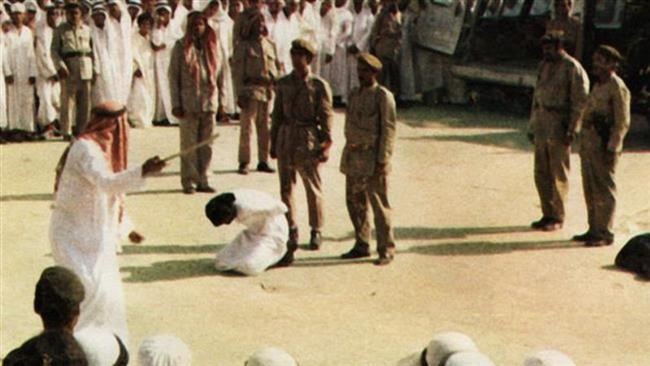TEHRAN, August 5, YJC - Saudi Arabia has defended the death penalties it has handed down to 14 Shia nationals amid criticisms that the defendants were tortured into false confessions and convicted in sham trials.

TEHRAN, Young Journalists Club (YJC) - In a statement carried by the Saudi Press Agency (SPA) on Friday, Mansour al-Qafari, a spokesman for the Saudi Ministry of Justice, claimed that all trials at the so-called Specialized Criminal Court — which sentenced the 14 to death — had met international standards and that the media and human rights observers had had access to the court sessions.
Qafari further claimed that death sentences were only given to those individuals who have committed the most serious crimes in the kingdom.
The 14 men are among a group of 24 people who were all convicted last year of carrying out attacks on police stations in the town of Awamiyah and the city of Seihat, both situated in the Qatif region of the Shia-dominated Eastern Province.
Nine of the others were sentenced to prison terms and the remaining one was cleared of the charges.
Late last month, the “Specialized Criminal Court” upheld the death sentences of the 14 Shias, with reports saying that they had been transferred to the Saudi capital, Riyadh, for execution.
‘Appalling justifications’
A London-based human rights organization, Reprieve, denounced the Friday Saudi statement as a justification for the imminent execution of the Shias, saying that one of the individuals, 17-year-old Mujtaba al-Sweikat, had never seen a lawyer, and no evidence had been presented against another, disabled Munir al-Adamno, during his trial.
“Saudi Arabia’s attempts to justify these 14 unlawful executions are appalling. This statement is a serious mischaracterization of the trial process against the 14 men,” said Reprieve Director Maya Foa.
She described as “risible” Riyadh’s claim that Sweikat had received a fair trial, saying, “Governments close to Saudi Arabia — including the [US President Donald] Trump administration and the UK — must urgently call on the kingdom to halt these executions.”
‘Under duress, and false’
Additionally, a Saudi rights activist, who was speaking on condition of anonymity, told Reuters, “The sentences were based on confessions that the accused had retracted in court, because they were taken by pressure and torture.”
The ruling against the 14 Shias is final and will be carried out after it is approved by King Salman bin Abdulaziz Al Saud.
‘Sham court proceedings’
Amnesty International separately urged the Saudi king not to ratify the death penalties as they had been the result of “sham court proceedings that brazenly flout international fair trial standards.”
At least 66 people have been executed in Saudi Arabia since the beginning of 2017, latest figures show.
Since February 2011, Saudi Arabia has stepped up security measures in Eastern Province, which has been rocked by pro-democracy demonstrations, with protesters demanding free speech, the release of political prisoners, and an end to economic and religious discrimination.
The government has attempted to suppress the pro-democracy drive, but it has intensified since January 2016, when Saudi Arabia executed respected Shia cleric Sheikh Nimr al-Nimr.
Related News
Tags
Your Comment